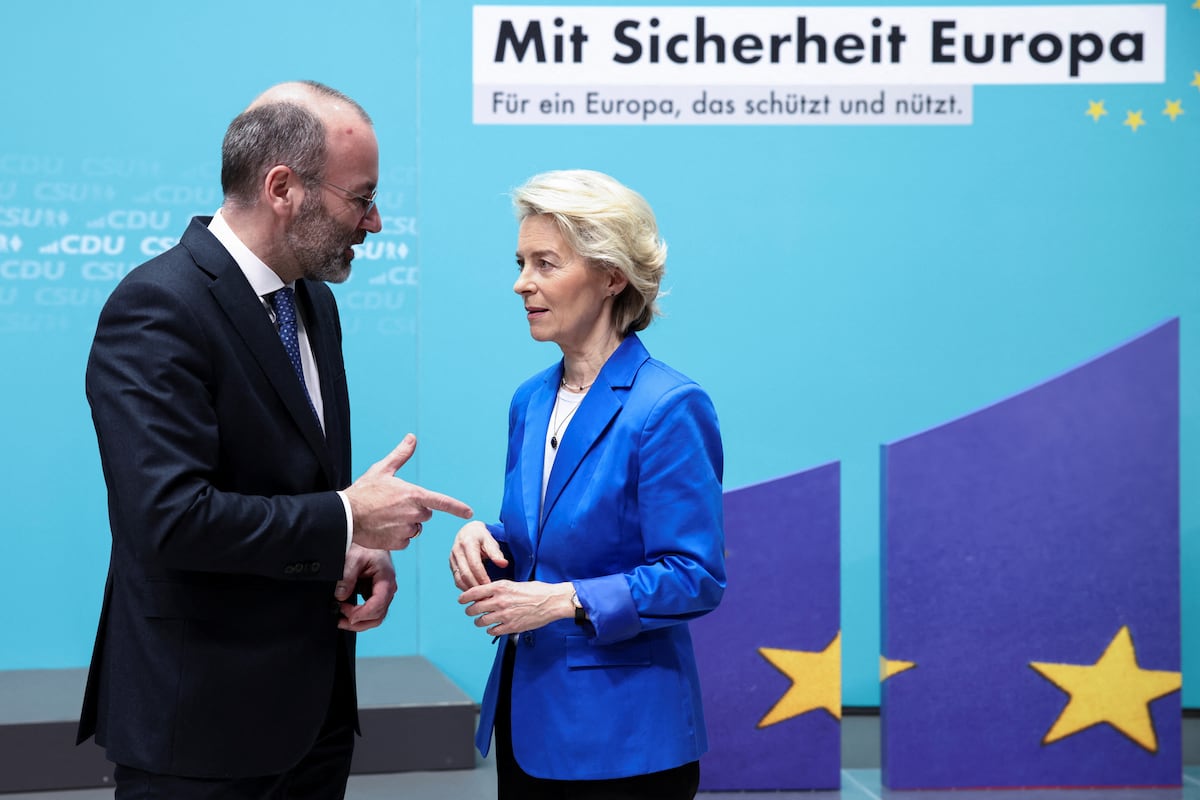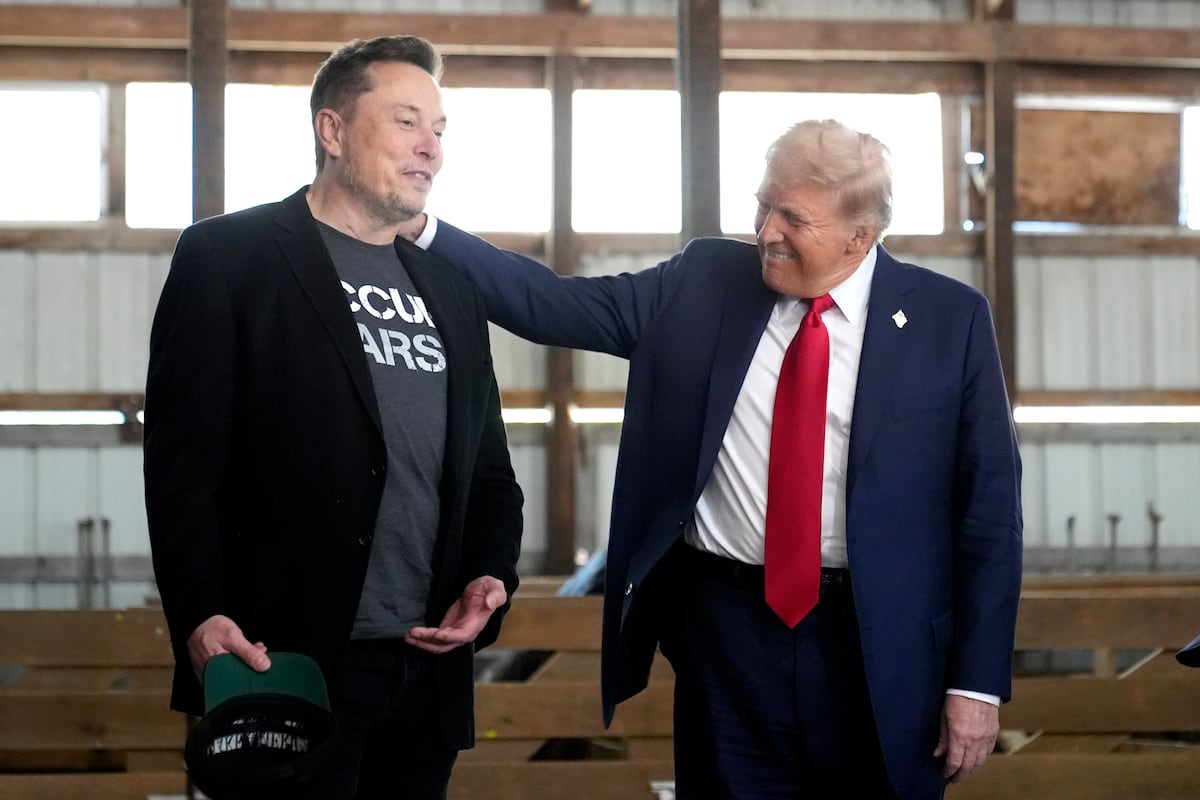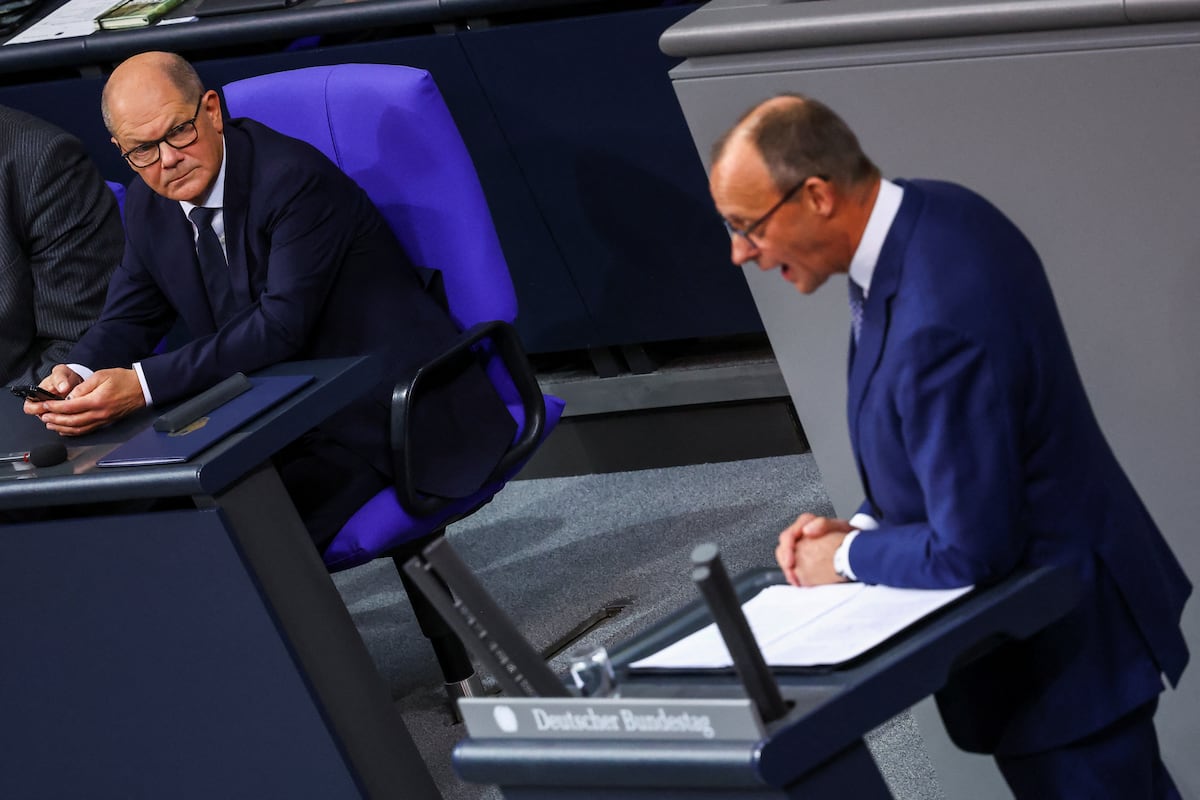The political maneuvers of the European People’s Party (EPP) and its power games keep the formation of the new European Commission blocked. The president of the conservatives, the Bavarian Manfred Weber, has put the head of the community Executive, Ursula von der Leyen, on the ropes, also popular and German. His operation this week to block the evaluation in the European Parliament of the Spanish Minister Teresa Ribera, designated by the President of the Commission to be his number two with a powerful green vice presidency and the Competition portfolio, has plunged community institutions into uncertainty.
Weber’s gesture, strong support for the Spanish PP in its crusade against the social democrat Ribera to cover up the management of the popular after the Valencia disaster, is part of a much broader movement that is defining the European balance of power in the legislature that begin. In the background, there is also the Bavarian conservative’s push to demonstrate his power—and that of the European Parliament, in which his party, the EPP, is the largest group—to Von der Leyen and the Commission. Its intention is also to weaken social democracy and the only strong leader left in the European Council, Pedro Sánchez: the crisis in Germany has left Chancellor Olaf Scholz very shaken.
“This is getting out of control,” says Greens MEP Daniel Freud. “When deciding on the European Commission, controversies between national parties should not influence, delay or block the appointment of the Commission.” In the past legislatures, the European Parliament had rejected a candidate due to his performance during the evaluation hearing, or because he was involved in some controversy or court case, but this time the national political fight – in this case, the Spanish one – has shaken Brussels and Von der Leyen, spurred on by her own political family.
“I hope that the European Parliament will soon give its consent to the new Commission,” claimed the Prime Minister of Luxembourg, Luc Frieden, on local radio in his country on Friday. He appealed to the “common sense” of the MEPs. “Including the party to which I belong [el Partido Popular Europeo]”, he launched.
The truth is that the maneuvers of the EPP and the political fight have blocked the great piece of the new community Executive, Ribera, proposed by Von der Leyen for the vice presidency of Clean, Fair and Competitive Transition and Competition, and to whom the conservatives now claim to give explanations in the Spanish Congress and promise to resign if she is prosecuted for the Dana floods. Several far-right organizations have already denounced her to court. In parallel, the Social Democrats refuse to vote for Raffaele Fitto, appointed by the Italian Prime Minister, the Italian far-right Giorgia Meloni, and the Hungarian commissioner, Olivér Varhelyi, an ally of the national-populist leader Viktor Orbán, as the conservatives demand.
The groups are negotiating, but the imbroglio is making it difficult for Von der Leyen to launch the community Executive on December 1, as anticipated. The German, which has a certain urgency, fueled by Donald Trump’s victory in the United States and the prospect of a tariff escalation from Washington, is not happy.
“Weber is paying off some outstanding debts,” says a veteran European source. “It was highly questioned for a while and now its power is making its power visible,” he adds. Some voices in Brussels see Weber’s maneuver as revenge against Von der Leyen. The politician – from the German CSU, the sister party of Von der Leyen’s CDU – aspired to preside over the European Commission in 2019, proposed by the conservative group in the European Parliament. He faced, however, continuous setbacks: he lacked support and his abilities and political stature to manage the community Executive were questioned. Finally, it went off the rails: then-German Chancellor Angela Merkel and French President Emmanuel Macron ended up pushing Von der Leyen’s name.
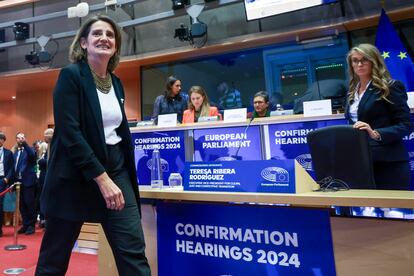
“The Bavarian bears a certain grudge against the head of the Community Executive, because he has been left alone as leader of the EPP and the group in the European Parliament,” says Ignacio Molina, principal researcher at the Elcano Royal Institute. “They are both Germans, she is from the center, more Christian Democrat, and he is more to the right. The relationship is not good. And Weber is not going to dislike pinching Von der Leyen.” The leader of the EPP, continues the analyst – a great connoisseur of the dynamics of Brussels – “likes the siren song of approaching the nationalist right more than the traditional grand coalition and believes that it is no longer necessary for it to be immovable, because “The party now has such a strong position that it can choose which side of the chamber to look to build its majority.”
Weber, in fact, has already dynamited the cordon sanitaire on several occasions to ally himself with the ultra-conservatives and the extreme right in an alliance that is already known in Brussels as the “Venezuela majority”, in reference to the fact that it was the one that carried out the resolution. in the European Parliament to recognize Edmundo González as elected president of that country. A step that the rest of the parties – and the majority of Member States – refuse to take due to the failed precedent of Juan Guaidó.
“The EPP is being radical and irrational: its flirtation with the extreme right is worrying. What price must Europe pay for Manfred Weber’s hunger for power?” asks social democratic MEP Kathleen Van Brempt.
Last term, the Bavarian politician already attacked Von der Leyen for her green and agricultural policies and for the community measures to ban the sale of cars with combustion engines by 2035. Weber even pulled the strings behind the scenes to explore whether there would be any alternative candidacy to his political family partner to preside over the Commission.
Right turn
The EPP, however, is a very unitary group that works like a powerful machine. Once the Christian Democrat showed signs that she would aspire to a second term, with the corresponding blessing of her party in Germany and Chancellor Scholz, the European conservatives raised her; although with some fissures, which became clear at the EPP congress, held in March in Bucharest, in which it was also seen that traditional Christian democracy has mutated and has definitively turned to the right. There, the popular Europeans set Von der Leyen’s agenda for the new legislature with a hard-line political manifesto.
The popular Europeans have spent years of internal debate to determine where they are going with the wave of far-right that is shaking Europe. But the voices of traditional Christian Democrats from the north, who warned against right-wing and approaching ultra-conservative groups, have been fading or joining the mainstream, embodied by Weber, who maintains that not all of the extreme right is equally toxic. That there are some acceptable parties, such as that of the Italian Giorgia Meloni, Brothers of Italy, despite its fascist roots. And they could even be part of the EPP.
This current had been criticizing Von der Leyen for years for his closeness to social democracy and his harmony with Pedro Sánchez. They attacked the German company for its social measures and blamed it for having too soft a hand with immigration. But the pragmatic head of the community Executive is also moving to the other side with much more severe immigration policies and a somewhat lighter green agenda. And the side that sees that within the extreme right there are parties, like Meloni’s, with which we can collaborate if certain conditions are met: that they are favorable to Ukraine, NATO and the EU. Like Weber, he tries to differentiate him from others he calls “Vladímir Putin’s friends,” such as the far-right Alternative for Germany (AfD), which is still taboo for his party at home to approach.
Von der Leyen supports her appointment for a second term, in reality, in the traditional pro-European majority more located in the center of the European Parliament – popular, social democrats, liberals, now also together with the Greens -, which has supported the foundations of the European Parliament and community institutions for decades.
A move with several derivatives
But Weber’s move has many derivatives; also the Spanish one. The PP has great influence in its European group: it is the second largest, after the Germans. “This is not just a strategy by Alberto Núñez Feijóo, which intoxicates the European leader. It goes further,” says Molina, from the Elcano Royal Institute. “European politics is infected by national polarization and confrontation: to think otherwise is very naive. The golden years of the great centrist consensus are over,” he remarks. “Weber, furthermore, has it in store for Sánchez. And he thinks that the move with Feijóo is good for him to weaken social democracy.”
That, more than revenge against Von der Leyen, is the underlying move seen by numerous veteran voices in Brussels. Weber and Sánchez have clashed for a long time. The German strongly supports the PP and has used his power in the European Parliament to demonstrate it. Furthermore, he does not forgive the Spanish president for a comment about the extreme right and the pacts of the Spanish popular with the Vox ultras (pioneers in Europe in collaboration with extremists) and their measures to return Francoist names to the streets in some cities. and towns of Spain. ”Would they return to Berlin the streets dedicated to the Third Reich as Vox does with the Francoists in Spain? Are you sure you feel comfortable with that, Mr. Weber?” Sánchez snapped.
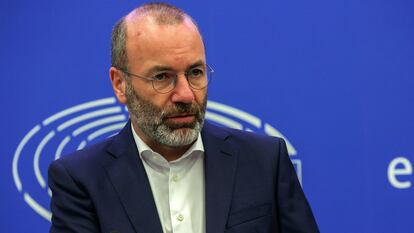
With the German elections scheduled for next February, in which the conservatives are leading in the polls, Weber is pushing Ribera’s case not only to weaken her — and even force the sending of another candidate or Von der Leyen take power away from his portfolio by calling into question his capacity and management in Spain, something that would also mean twisting the German’s arm—but also to mark Sánchez for future elections in Spain and help the PP. The Bavarian aspires, thus, for another popular leader to sit in the European Council who, like the Commission and the European Parliament, has also turned to the right.
For now, the attempts to mediate between popular, social democrats and liberals – the groups that agreed to postpone the remaining evaluations (Ribera’s, Fitto’s, Varhelyi’s and four others) to vote for them as a bloc and that no one would retaliate against the candidate from another party—have failed. Von der Leyen tried it twice this week. It was even urgently presented in the European Parliament on Tuesday, when the EPP launched the order that it would delay the vote on the Spanish until next week (something it has finally achieved). The popular Roberta Metsola, president of the European Parliament, has not succeeded either.
Disgust about the situation increases. Although if all the pending vice presidents and commissioners are approved this week there would still be time to vote to give the green light to the entire Commission in the last plenary session of November, on the 27th, and for it to begin operating on December 1.
Alternative scenarios are also making their way. “There may be solutions, such as the EPP demanding that Spain send another candidate, alleging that Ribera is a very divisive person and unsuitable to lead the EU’s competition policy, now that Trump has won the elections,” says Molina. He believes, in any case, that everything will end up being resolved and that it will be approved the Spanish way. But there is also the scenario of the nuclear button, of forcing political groups to evaluate. Conservatives and the far right would reject Ribera, and Sánchez would refuse to name another candidate. A great institutional crisis would then arise, fueled by polarization. An enormously damaging precedent for European democracy.

